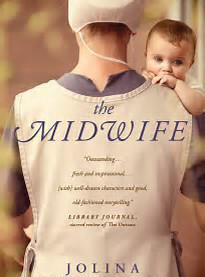
photo by Frank Köhntopp via Unsplash
It has finally happened. I seriously had the thought that I would not attend an event just because I knew that, two days later, I would receive the dreaded email evaluation. “It will only take 5-10 minutes of your time,” the email will say.
Great. I’ll get to it right after the questionnaires related to my last hotel stay, the meeting I attended last week, and the consumer survey from a store I visited in a town I’ll probably never return to.
I know from whence these come. In their pursuit of excellence and quality, the organizations and businesses need feedback on how they’re doing. They want to improve at their core mission. They appreciate my offering tips. Sharing is caring.

photo by Damian Zaleski via Unsplash
Yes, but scoring is boring! Worse than boring, the endless surveys assume that I have a judgment to offer (on a functional 5-point scale) about everything I experience. And if they just fiddle with their formula enough they’ll be able to hit my sweet spot.
Actually, I DO have judgments to offer. Ask me to consider for a minute and I’ll be able to find a number of things that could be better. The towels in the hotel bathroom did look a little worn and threadbare. The speaker’s mic had a kind of tinny sound. And come to think about it, the paper towels we bought had an odd perforation pattern.
I could do this all day.
Perhaps that would be helpful to someone, but when it comes to the life of the Spirit, I’m not so sure. I appreciate churches that strive for excellence in hospitality and worship. And I definitely notice when its not done well. But if we’re talking encounter with God, am I really qualified for the job of consumer critic?
Survey Monkey questionnaires, like every online tool of evaluation, are a product of the modern world in which the autonomous individual is assumed to have a cosmic skybox inside them from which she can stand, detached from the earth and context, and cast an all-knowing eye at the thing before her. It’s not a bad assumption if you just want some feedback on the sound system in the theater, but it’s more problematic if we’re talking about worldviews.
The essential things in this world, (like the deep pulse of the natural world, the complex bonds of family, and the mystery of a holy God), all have their hooks in us before we ever find words to describe them. To imagine we can understand them fully or stand apart from them enough to pass judgment on them is an illusion. Not that we shouldn’t use the gift of reason to explore them more fully. It’s just that these big realities don’t pass before our skybox like a parade. And we ought not to think more highly of ourselves than we ought to think, as Paul says in Romans 12:3.
 Too many surveys and I begin to feel that I am more autonomous, more god-like than it’s good for a creature to feel. More powerful is to stand before the God who knows me and to feel that I am connected to—somehow inside—a reality much larger than I. How well does our worship, our common life lead us into such a realm?
Too many surveys and I begin to feel that I am more autonomous, more god-like than it’s good for a creature to feel. More powerful is to stand before the God who knows me and to feel that I am connected to—somehow inside—a reality much larger than I. How well does our worship, our common life lead us into such a realm?
In her poem “Two Pigeons and One Dove,” Mary Szybist looks at a tree and writes:
“Nothing stays long enough to know.
How long since we’ve been inside
anything together the way
these birds are inside
this tree together, shifting, making it into
a shivering thing.”
The birds don’t need a skybox.
Advertisements Share this:




